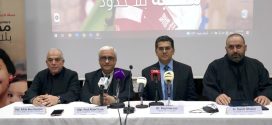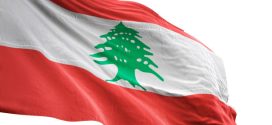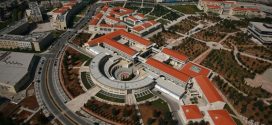On the Occasion of Lebanon Journalism Martyrs and Lebanon Martyrs Day, UCIP-Lebanon Sheds Light on the Vulnerability of Media Journalists Working Conditions, Collective Dismissals and Dwindling Job Opportunities
Every May, Lebanese and international journalists gather to mark the World Press Freedom Day. This day offers an opportunity to look into the working conditions of Lebanese, Arab and international media institutions as well as the vital role they can have in the emancipation of nations, their development and civilization. Both people and governments are increasingly aware of the power of media considered as a sword that helps societies to face internal and external challenges and defend their causes.
On this occasion, the International Catholic Union of the Press in Lebanon (UCIP – Lebanon) issued the following statement:
1- We urge Lebanese media institutions and the authorities in charge of protecting media journalists to modernize both their syndicates and their laws with a view to preserving freedom of expression and media freedom in Lebanon. These institutions should help the readers, viewers and listeners to become aware of their right to know precise updated information in order to enhance transparency, justice and development.
2- The reports compiled by UCIP Media Observatory throughout the year reveal many violent and oppressive practices against Lebanese journalists on duty. They also point out to collective dismissals in five major media institutions. Many of the people that were laid off were prominent journalists who helped make journalism history in Lebanon and the Arab World. These reports clearly reveal the vulnerability of working conditions, the failure of media institutions to respect the labor code and the inaction of syndicates as well as dwindling job opportunities. The Union urges the relevant authorities to find a just solution to the problem of these journalists working in Lebanese or foreign institutions in Lebanon so they can have access to social benefits and severance packages and enjoy many other fundamental social rights.
3- The successive crises that hit Lebanese media institutions and have a heavy toll on journalists require drastic solutions on all levels. First, a direct intervention from the official authorities is necessary to provide the needed support, as it is the case in many Western countries. It is also necessary to regularize the prevailing conditions in order to guarantee both quality and quantity. All media institutions must thus become aware of the rapid and serious decline of the Lebanese media field and act rapidly to put things back on the right track.
4- Freedoms of opinion and criticism are fundamental to the development of mankind and human intellect as well as societies. Thus, defending them must be a top priority for us. Any censorship imposed on these freedoms would be an unbearable danger. In fact, censorships have always lead to totalitarian regimes. In this context, media institutions must abide by ethics in order to develop and to have self-control. Lebanese media institutions fall short blatantly in this regard and they must establish internal legislations to guide their work.
5- The Union reaffirms the national and cultural role of the Lebanese press during the second Arab renaissance, contributing to the national awakening, reviving the Arab language and harmonizing Arab culture with globalization. In this regard, Arab Christians played a pioneering role through the establishment of printing houses in monasteries and educational institutions. The Union urges them today to resume the pioneering role they had in the past and avoid dispute and division which undermine the cultural productivity and sap their active participation in national development.
6- Lebanon and the modern Arab World take great pride in the Lebanese press accomplishments which are the fruits of a Muslim-Christian partnership. Nowadays, the Lebanese press must assume many big responsibilities in order to resume its role and defend human rights and national causes. Political and sectarian affiliation is a major problem that tarnishes the image of the majority of Lebanese media institutions, especially that these institutions have been transformed into a tool in the hands of belligerent parties.
UCIP hopes that the Lebanese media institutions will stay faithful to their historical message for which many people sacrificed their lives in order to defend the independence of Lebanon and its sovereignty. In the face of today challenges, media message must be characterized with values of respect and peaceful coexistence, far from defiance and violence.
Translated by: Marie-Lou Nicolas


 الاتحاد الكاثوليكي العالمي للصحافة- لبنان اوسيب – لبنان
الاتحاد الكاثوليكي العالمي للصحافة- لبنان اوسيب – لبنان




